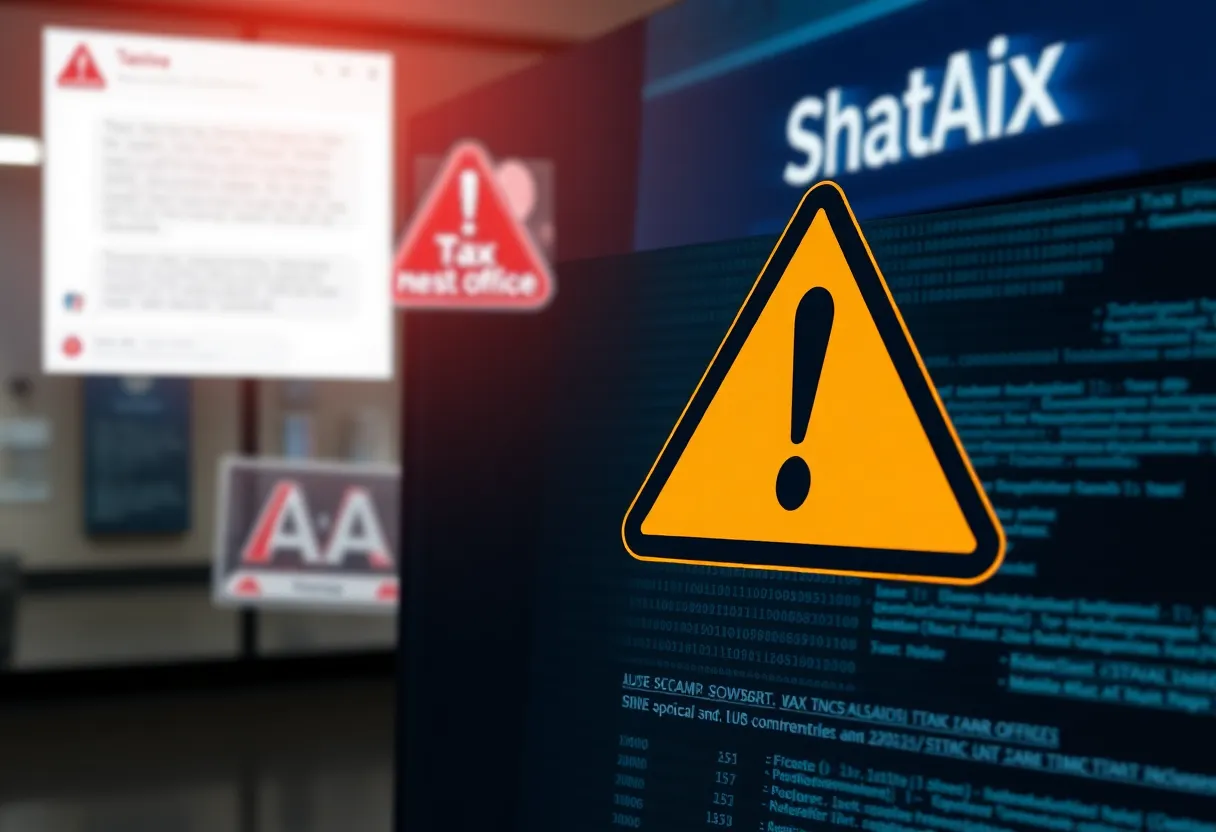Oklahoma City, October 15, 2025
Residents of Oklahoma City are being targeted by a sophisticated text message scam, where fraudsters impersonate officials from the Oklahoma Tax Commission. Victims receive urgent demands for payment of alleged tax debts using untraceable methods like gift cards, leading to significant financial losses. Authorities are urging citizens to verify any communication directly with the OTC, as several residents have already lost over $10,000 to this scam.
Oklahoma City Tax Scam Alert: Fraudsters Target Residents with Fake Debt Demands
Oklahoma City residents are facing a pressing threat from a text message scam where fraudsters pose as officials from the Oklahoma Tax Commission (OTC), demanding urgent payments for supposed tax debts through untraceable methods like gift cards or wire transfers. This scheme has already impacted dozens of people, resulting in losses exceeding $10,000. Authorities are issuing urgent alerts to protect taxpayers from these deceptive tactics.
Details of the Scam and Immediate Risks
The scam involves text messages that mimic official communications, creating a sense of urgency to trick recipients into paying immediately. Fraudsters claim outstanding tax debts must be settled on the spot, often threatening legal action or penalties if not addressed quickly. Victims have reported receiving these messages on their personal phones, with some leading to financial losses when they followed the instructions. The OTC has confirmed that this is not an isolated incident but part of a broader wave affecting the state.
Commissioner Tim Myers has highlighted the importance of verifying all communications directly through official OTC channels. The agency stresses that it never requests payments via gift cards, wire transfers, or similar methods. This scam’s sophistication lies in its use of spoofed numbers and convincing language, making it seem legitimate at first glance. Residents who receive suspicious texts are advised to avoid responding and instead contact the OTC through verified phone lines or their website.
Cybersecurity Recommendations for Protection
To safeguard against such threats, cybersecurity experts suggest practical steps for individuals and businesses. Enabling two-factor authentication on tax-related accounts adds an extra layer of security, requiring a second form of verification beyond just a password. This simple measure can prevent unauthorized access even if login details are compromised. Additionally, reporting suspicious texts to authorities helps track and disrupt these scams, allowing law enforcement to build cases against the perpetrators.
Local chambers of commerce are taking proactive steps by distributing educational flyers to their members. These materials outline common scam indicators, such as unsolicited demands for payment and pressure to act without verification. Some organizations are also hosting scam awareness workshops to equip small business owners with the knowledge to spot and report fraud. This community effort aims to foster a culture of vigilance, ensuring that both individuals and companies remain protected.
Timing and Heightened Vulnerabilities
The emergence of this scam coincides with preparations for tax season, a period when many are handling financial documents and extensions. This timing increases risks, particularly for small business owners who may be juggling multiple filings and less familiar with digital security protocols. The added stress of deadlines can make people more susceptible to hasty decisions, which scammers exploit. As digital threats continue to evolve, staying informed is crucial for maintaining financial stability and trust in official systems.
Background on Tax Scams in Oklahoma
Tax-related scams have been a growing concern in Oklahoma, with fraudsters adapting their methods to target vulnerable groups. Previous incidents have involved phone calls and emails, but text messages represent a newer, more direct approach that reaches people quickly. The OTC regularly monitors for such patterns and issues alerts to keep the public informed. By summarizing these key facts, this overview underscores the need for caution during sensitive financial periods.
Broader Implications for Businesses and Residents
Small businesses, in particular, face amplified risks because they often manage sensitive data for multiple clients. A successful scam could not only drain resources but also damage reputations if customer information is exposed. Chambers of commerce are emphasizing the role of education in prevention, encouraging members to share tips with employees and partners. As Oklahoma’s economy relies on trust in its financial institutions, collective action against scams helps preserve that foundation.
Residents are encouraged to double-check any unexpected communication related to taxes. By relying on official sources and adopting secure practices, individuals can reduce their exposure to these threats. The OTC’s ongoing efforts, combined with community initiatives, demonstrate a commitment to tackling fraud head-on. This scam alert serves as a timely reminder that awareness is the first line of defense in an increasingly digital world.
Frequently Asked Questions (FAQ)
What is the Oklahoma Tax Commission text message scam about?
Fraudsters are impersonating OTC officials, demanding immediate payment for alleged tax debts via gift cards or wire transfers. The scheme has already affected dozens of residents, with losses totaling over $10,000.
How has the scam impacted Oklahoma residents?
The scheme has already affected dozens of residents, with losses totaling over $10,000.
What does the Oklahoma Tax Commission advise?
Commissioner Tim Myers urged citizens to verify any communication through official channels only, emphasizing that the OTC never requests payments this way.
What do cybersecurity experts recommend?
Cybersecurity experts recommend enabling two-factor authentication on tax accounts and reporting suspicious texts to authorities.
When is the risk of this scam heightened?
This scam wave coincides with tax season preparations, heightening risks for small business owners filing extensions.
Key Features of the Oklahoma Tax Scam Alert
| Feature | Description |
|---|---|
| Scam Method | Fraudsters impersonating OTC officials via text messages, demanding payments via gift cards or wire transfers |
| Impact | Affected dozens of residents with losses over $10,000 |
| OTC Advice | Verify communications through official channels; OTC never requests payments this way |
| Expert Recommendations | Enable two-factor authentication and report suspicious texts |
| Timing | Coincides with tax season, heightening risks for small business owners |
| Community Response | Chambers of commerce distributing flyers and hosting awareness workshops |


